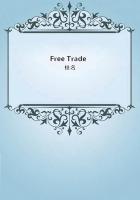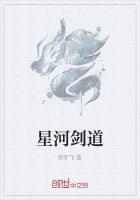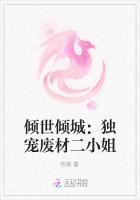From this it is manifest that the stimulatory movements based upon sensory impressions, whether the latter are derived from external objects or from causes within the body, present themselves not only when persons are awake, but also then, when this affection which is called sleep has come upon them, with even greater impressiveness. For by day, while the senses and the intellect are working together, they (i.e. such movements) are extruded from consciousness or obscured, just as a smaller is beside a larger fire, or as small beside great pains or pleasures, though, as soon as the latter have ceased, even those which are trifling emerge into notice. But by night [i.e. in sleep] owing to the inaction of the particular senses, and their powerlessness to realize themselves, which arises from the reflux of the hot from the exterior parts to the interior, they [i.e. the above 'movements'] are borne in to the head quarters of sense-perception, and there display themselves as the disturbance (of waking life) subsides. We must suppose that, like the little eddies which are being ever formed in rivers, so the sensory movements are each a continuous process, often remaining like what they were when first started, but often, too, broken into other forms by collisions with obstacles. This [last mentioned point], moreover, gives the reason why no dreams occur in sleep immediately after meals, or to sleepers who are extremely young, e.g. to infants. The internal movement in such cases is excessive, owing to the heat generated from the food. Hence, just as in a liquid, if one vehemently disturbs it, sometimes no reflected image appears, while at other times one appears, indeed, but utterly distorted, so as to seem quite unlike its original; while, when once the motion has ceased, the reflected images are clear and plain; in the same manner during sleep the phantasms, or residuary movements, which are based upon the sensory impressions, become sometimes quite obliterated by the above described motion when too violent; while at other times the sights are indeed seen, but confused and weird, and the dreams [which then appear] are unhealthy, like those of persons who are atrabilious, or feverish, or intoxicated with wine. For all such affections, being spirituous, cause much commotion and disturbance. In sanguineous animals, in proportion as the blood becomes calm, and as its purer are separated from its less pure elements, the fact that the movement, based on impressions derived from each of the organs of sense, is preserved in its integrity, renders the dreams healthy, causes a [clear] image to present itself, and makes the dreamer think, owing to the effects borne in from the organ of sight, that he actually sees, and owing to those which come from the organ of hearing, that he really hears; and so on with those also which proceed from the other sensory organs. For it is owing to the fact that the movement which reaches the primary organ of sense comes from them, that one even when awake believes himself to see, or hear, or otherwise perceive; just as it is from a belief that the organ of sight is being stimulated, though in reality not so stimulated, that we sometimes erroneously declare ourselves to see, or that, from the fact that touch announces two movements, we think that the one object is two. For, as a rule, the governing sense affirms the report of each particular sense, unless another particular sense, more authoritative, makes a contradictory report. In every case an appearance presents itself, but what appears does not in every case seem real, unless when the deciding faculty is inhibited, or does not move with its proper motion. Moreover, as we said that different men are subject to illusions, each according to the different emotion present in him, so it is that the sleeper, owing to sleep, and to the movements then going on in his sensory organs, as well as to the other facts of the sensory process, [is liable to illusion], so that the dream presentation, though but little like it, appears as some actual given thing. For when one is asleep, in proportion as most of the blood sinks inwards to its fountain [the heart], the internal [sensory] movements, some potential, others actual accompany it inwards. They are so related [in general] that, if anything move the blood, some one sensory movement will emerge from it, while if this perishes another will take its place; while to one another also they are related in the same way as the artificial frogs in water which severally rise [in fixed succesion] to the surface in the order in which the salt [which keeps them down] becomes dissolved. The residuary movements are like these: they are within the soul potentially, but actualize themselves only when the impediment to their doing so has been relaxed; and according as they are thus set free, they begin to move in the blood which remains in the sensory organs, and which is now but scanty, while they possess verisimilitude after the manner of cloud-shapes, which in their rapid metamorphoses one compares now to human beings and a moment afterwards to centaurs. Each of them is however, as has been said, the remnant of a sensory impression taken when sense was actualizing itself; and when this, the true impression, has departed, its remnant is still immanent, and it is correct to say of it, that though not actually Koriskos, it is like Koriskos. For when the person was actually perceiving, his controlling and judging sensory faculty did not call it Koriskos, but, prompted by this [impression], called the genuine person yonder Koriskos. Accordingly, this sensory impulse, which, when actually perceiving, it [the controlling faculty] describes (unless completely inhibited by the blood), it now [in dreams] when quasi-perceiving, receives from the movements persisting in the sense-organs, and mistakes it-an impulse that is merely like the true [objective] impression-for the true impression itself, while the effect of sleep is so great that it causes this mistake to pass unnoticed. Accordingly, just as if a finger be inserted beneath the eyeball without being observed, one object will not only present two visual images, but will create an opinion of its being two objects;while if it [the finger] be observed, the presentation will be the same, but the same opinion will not be formed of it; exactly so it is in states of sleep: if the sleeper perceives that he is asleep, and is conscious of the sleeping state during which the perception comes before his mind, it presents itself still, but something within him speaks to this effect: 'the image of Koriskos presents itself, but the real Koriskos is not present'; for often, when one is asleep, there is something in consciousness which declares that what then presents itself is but a dream. If, however, he is not aware of being asleep, there is nothing which will contradict the testimony of the bare presentation.
同类推荐
热门推荐
倾世倾城:独宠废材二小姐
她,21世纪大名鼎鼎的杀手,却不料天象异变。一朝穿越,让她成为了叶家废材二小姐,从此以后,咸鱼翻身,麻雀变凤凰,收神兽,炼神器,制神丹......却不料,风华一世的她遇见了他......他,景玄国刹神景王爷,传闻说,他从不让女人进他身内三米否则血溅当场,传闻,他杀伐果断,却血不沾衣,传闻,他总是一身白衣飘飘,却心冷如铁。却不料,他遇见了她......二人相遇,是福还是祸?该笑还是该哭?强强联手,掀起一片腥风血雨......

